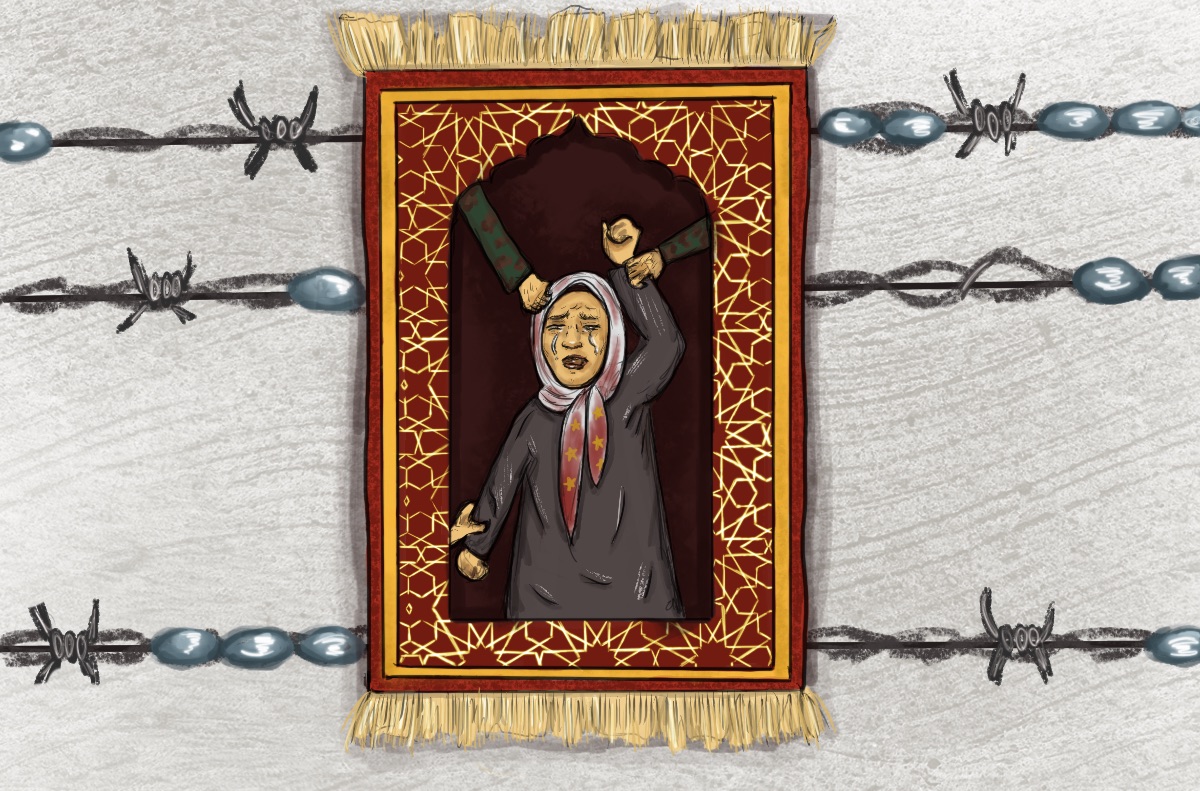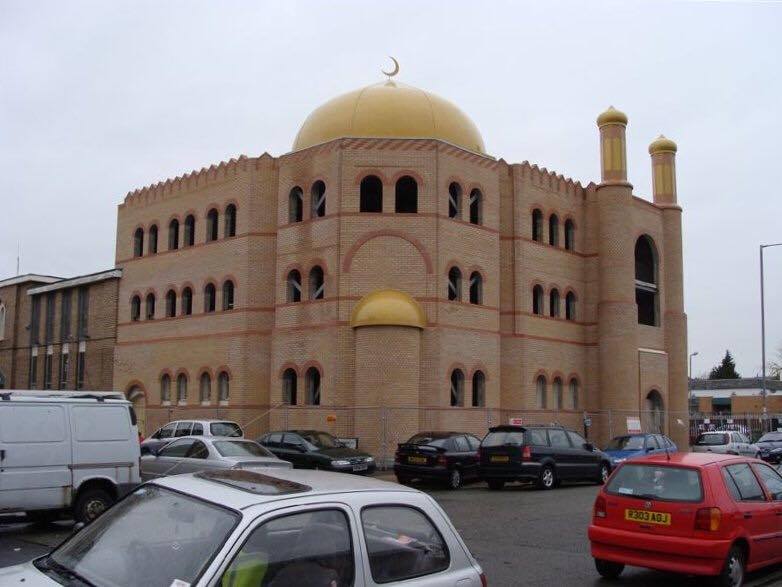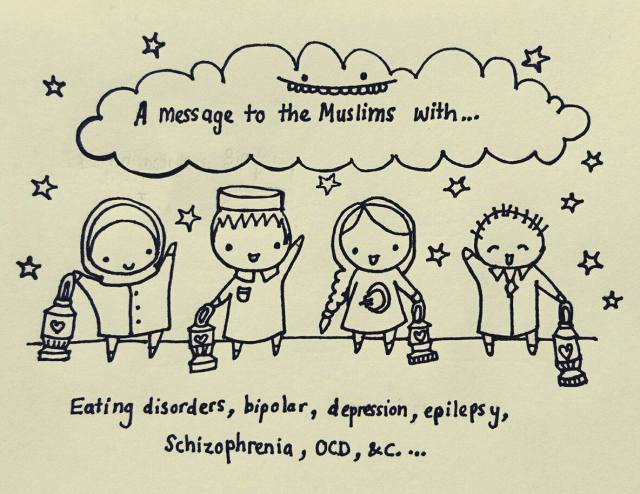British Muslims need more than empty ‘Eid Mubarak’ messages from MPs
Naima Khan from Inclusive Mosque lays out what MPs can actually do to support British Muslims this Eid beyond social media posts.
Naima Khan
21 Jul 2021
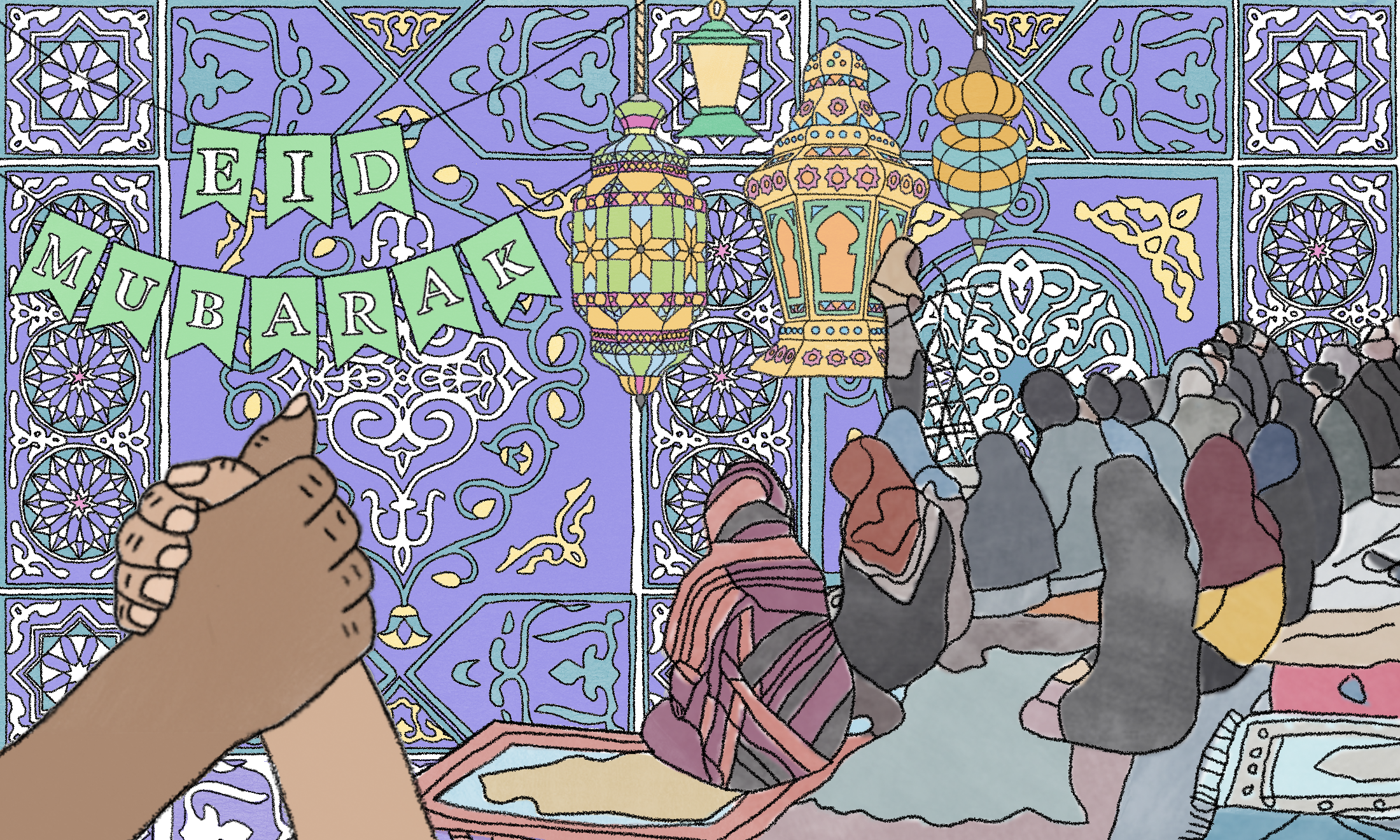
Illustration by Nadine Nour el Din
Eid Mubarak messages from politicians are plentiful this time of year. Here’s Keir Starmer’s empty attempt, Priti Patel’s banal offering and, lest we forget, one minute and 13 seconds of cringe courtesy of Boris Johnson. Prepared to clunk their way through the algorithms, they are slapped on social media pages, met with applause by some and scepticism by others. Still, the Eid Mubarak messages from our elected officials remain a one-way communication opportunity for politicians to say something to British Muslims without responding to our actual needs.
These moments can be turned into an occasion for MPs to listen and, crucially, take action on what Muslims need from them. That’s why this Eid, at Inclusive Mosque, a feminist mosque led by women and genderqueer Muslims, we wanted to provide some focus for MPs who actually do want to meet the immediate political needs of their Muslim constituents.
This is complicated – there is so much to campaign for. We want to talk about protecting the NHS from privatisation and proper pay for NHS staff. We want to talk about continued deportation flights, the detention of people with insecure immigration status and much more.
But we’ve picked three policy discussions that have systemic impact on the most marginalised members of the Muslim community: this includes disabled Muslims, Black Muslims, those with insecure immigration status and young Muslims.
Firstly, we need MPs to do whatever they can to block the passing of the Police, Crime, Sentencing and Courts Bill (PCSC bill). As gal-dem has previously highlighted, the bill “threatens an end to many of our freedoms of dissent as we know them.” This is the crux of it. As marginalised people, dissent is often the only or the most effective way of having our needs heard. The systems of this country were not set up to support us, and our needs have always been an afterthought. To be heard, we need the freedom to protest, to withdraw labour, and to create alternative systems that work for us, as demonstrated by Gypsy, Roma and Traveller communities, whom this bill will also harm.
Sisters Uncut and many other campaign groups have highlighted that “the language and the scope of powers given to senior officers and to the Home Secretary through this Bill are open for abuse.” This will impact Black Muslims directly. We already have an institutionally racist police force and we exist in a country where politicians take a long time to make change, even when they want to. We need the right to mobilise and demand our rights be protected.
“The Prevent Duty impacts how we show up in public spaces and how we take up space in the world”
Secondly, we need MPs to end the Prevent Strategy. It doesn’t work. It causes harm and has done so for years. The Prevent Strategy is the government’s key counter-terrorism policy, requiring public bodies including schools, hospitals and social services to have “due regard to the need to prevent people from being drawn into terrorism.” In practice, this means professionals with a duty to care for people seeking support are allowed to act on their own unexamined prejudices. Between 2016 and 2019, more than 600 children under six years old were referred to Prevent. As human rights campaign group Liberty has said: “The policy simply embeds discrimination in public services, eroding carefully cultivated relationships which rely on trust, and fosters a culture of self-censorship. And studies have shown that Muslim students are changing their behaviour for fear of being stigmatised, labelled as extremists or subjected to discrimination.”
Like the recent EU Court of Justice ruling that companies in the European Union can ban their employees from wearing hijab, the Prevent Duty impacts how we show up in public spaces and how we take up space in the world. Some MPs like Zarah Sultana, Diane Abbott and Apsana Begum have voiced concern about Prevent, its implementation and its impact. Naz Shah has spoken out about the EU Court ruling on visible expressions of religion, but we haven’t heard a peep from the vast majority of UK MPs about the insidious ongoing Prevent Duty nor the blatantly discriminatory ruling.
Thirdly, though no less important, we want MPs to prioritise disabled people in all policies, especially those related to the UK’s economic recovery and management of the Covid-19 pandemic. We saw how blasé the government was about the deaths of people with underlying health conditions. Preserving the lives of disabled people and the quality of their lives didn’t feature at all. The mountain of collected data on the Department of Work and Pensions and the harm its policies have enacted on disabled people is a clear example of the systemic marginalisation and violence that disabled people experience. ‘Disabled Women’s Perspectives on Independent Living During the Pandemic’, a report by the collective group Sisters of Frida, too shows the infrastructure that disabled people must contend with just to have their basic needs met.
While Eid Mubarak messages from MPs remain stagnant and full of repetitive platitudes ignoring the intersecting systems of oppression that Muslims face, we will say what we are entitled to say as their constituents: Do better, we’ve told you how.

Muslim women share their Suhur rituals this Ramadan
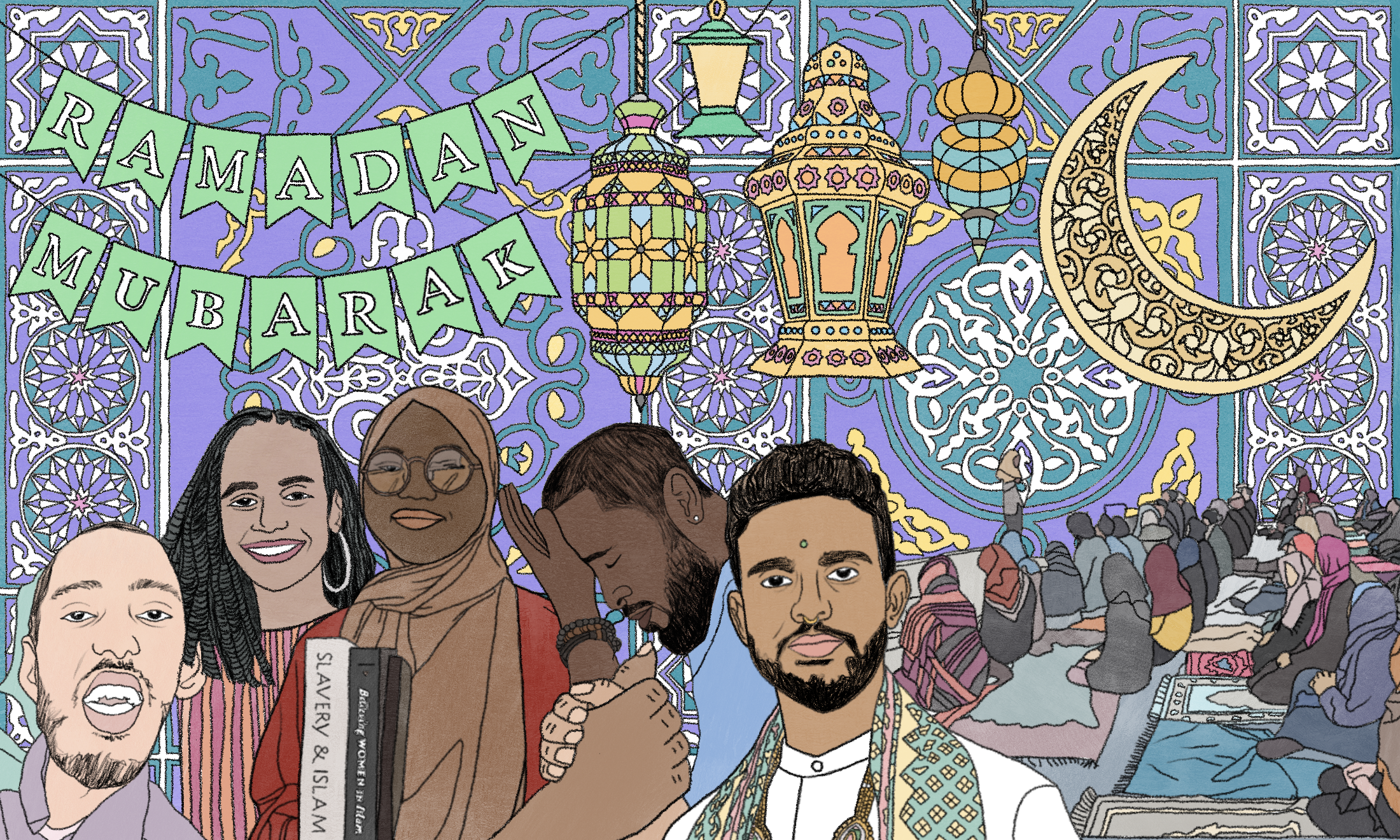
Ramadan resources for conscious community-building in 2021
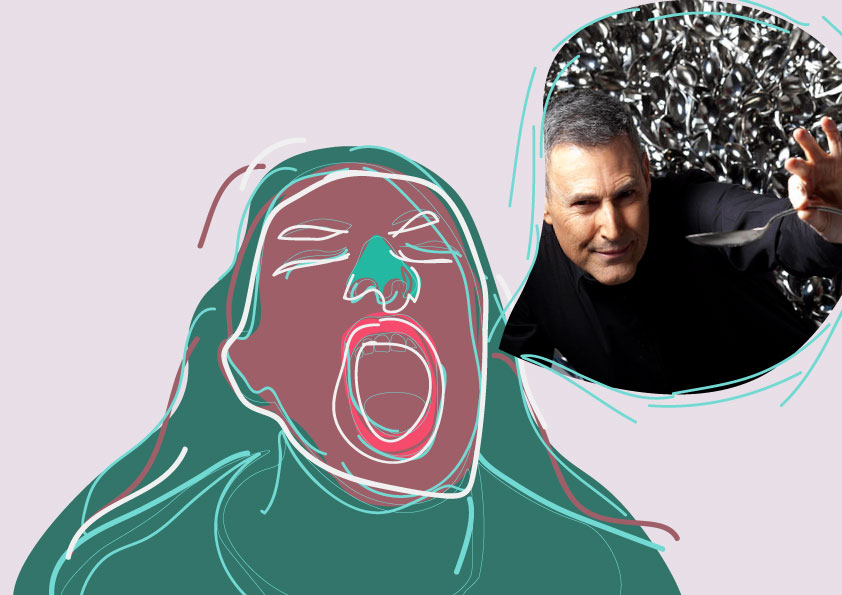
This week saw K-pop’s #MeToo, LGBTQ+ Muslims speaking out against homophobia and Brexit telepathy
